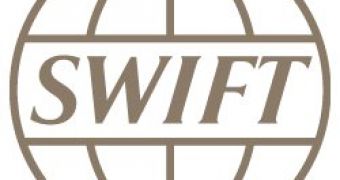The European Union has signed an agreement, which allows the US Department of Treasury to transfer European SWIFT banking data in order to assist in terrorism investigations. The agreement still has to pass a vote in the European Parliament before going into effect.
The Society for Worldwide Interbank Financial Telecommunication, more commonly known and referred to as SWIFT, is a cooperative organization established by banks, which maintains a secure network for exchanging financial messages, including transactions. SWIFT was founded and is headquartered in Belgium.
SWIFT's old architecture consisted of two centers, one located in Europe and one in US, with data being mirrored on both of them. However, because this represented a violation of European Union privacy legislation, the society was pressured into changing the way it operates. In response, SWIFT added a third neutral center to its infrastructure, located in Switzerland, which mirrors both the US and European zones.
This change cut access to information on intra-EU SWIFT transactions for the US government prompting the proposal of an agreement that would allow the Treasury Department to request data transfers under special conditions, such as investigations into terrorist activities. An interim agreement was signed last November, but it was subsequently rejected in the European Parliament in February.
The new version of the agreement signed yesterday by the Spanish Minister for Home Affairs, Alfredo Pérez Rubalcaba, on behalf of the European Union and the United States Embassy's Economic Officer to the EU, Michael Dodman, was modified to address some of the privacy concerns that led to the rejection of the previous draft.
Before being ratified and going into effect, the new agreement will face a new vote in the European Parliament at the beginning of July. However, several officials and political groups have already expressed their disapproval with the text, which is still considered too vague.
The European Data Protection Supervisor ('EDPS'), Peter Hustinx, has already issued a statement expressing the need of stronger data protection provisions in the agreement. "I am fully aware that the fight against terrorism and terrorism financing may require restrictions to the right to the protection of personal data. However, in view of the intrusive nature of the draft agreement, which allows transfers of data in bulk to the US, the necessity of such scheme should first be unambiguously established, especially in relation to already existing instruments. Would this be the case, other key elements should however be improved in order to meet the conditions of the EU legal framework for data protection," he said.

 14 DAY TRIAL //
14 DAY TRIAL //